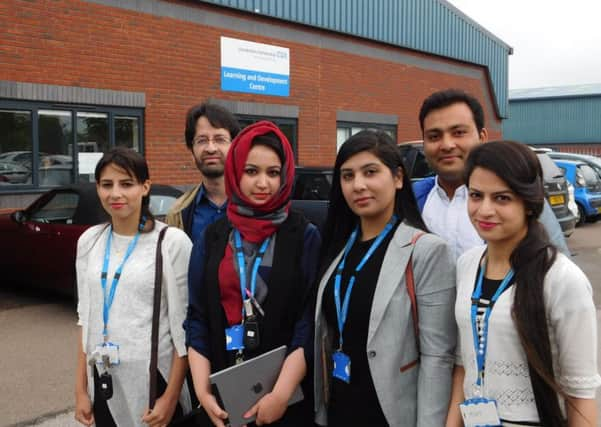Medical students from India enjoy Sleaford exchange


The five young doctors from a government medical college in Srinagar, northern India have had an eye-opening two weeks understanding the techniques of teams at Lincolnshire Partnership Foundation NHS Trust, which handles mental health services in the county from its headquarters in Sleaford.
Medical intern Khuram Maqbool explained they have been following a weekly interactive programme online, communicating with psychiatric experts at King’s College London. They were then given an opportunity to come over here to see first hand how a developed country approaches and treats mental illness.
Advertisement
Hide AdAdvertisement
Hide AdFellow intern Syed Bushra Imtiyaz said in Lincolnshire there was a totally equal distribution of health resources, rich or poor, whereas only richer people in Kashmir can pay for private clinics.
Student Suhail Saifullah was impressed with the integrated system he had seen, with proper documentation, whereas back in Kashmir the patient has to manage his own records.
Consultant psychiatrist Dr Sayed Aqeel Hussain, has travelled with the students having led the five year joint training programme, backed by King’s College London and the World Health Organisation, part of which was the student exchange to give students first hand advice and experience. One week was spent focussing on community health services and the second week was spent on in-patient services.
Hena Mustafa said most mental health issues were similar except alcohol dependency, which was much more of a problem here than back home where alcohol is forbidden among the mainly Muslim population.
Advertisement
Hide AdAdvertisement
Hide AdSupport for patients at home within the family was stronger in Kashmir, but there was very little professional mental care services in the community, instead relying on hospitals.
Dr Saifullah had learned it was important to spend more time with a patient and empathise with them: “Here they look at the physical and psychological causes too,” he said.